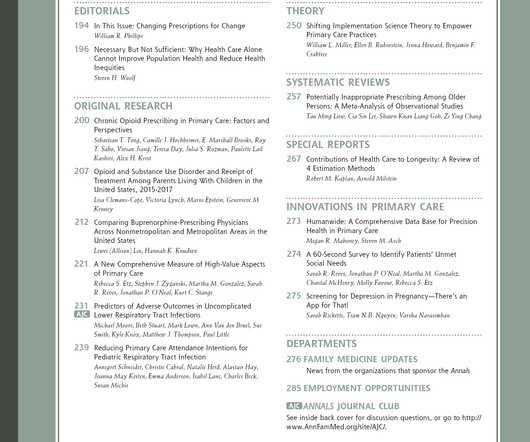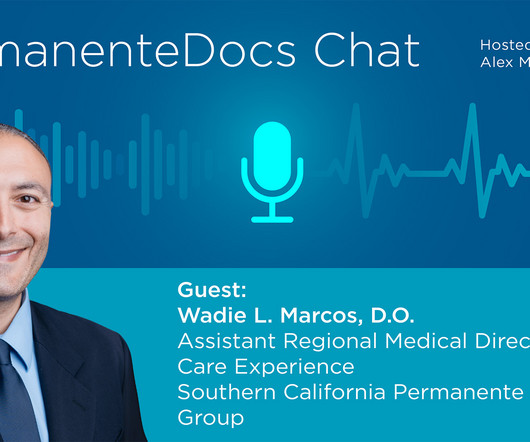Important Outcomes for Type 2 Diabetes Mellitus: The Patients Perspective [Diabetes and endocrine disease]
Annals of Family Medicine
NOVEMBER 20, 2024
Context: Patient Important Outcomes (PIOs) was first introduced in the literature with the criticism that research studies were designed with outcomes relevant to health care providers, but not relevant/important to patients. Study Design & Analysis: Mixed methods study employing physician survey and patient focus groups.























Let's personalize your content